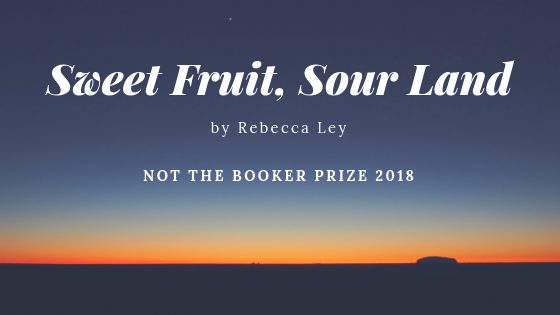|
So here I am again, banging on about openings. But I just find them so important and very often they set the tone for me and reflect how I will feel about the book overall. We’re in another dystopian future; as in Sealed, the land is diseased, cracked, scorched. The prologue centres on a lemon, found desiccated and hidden behind a cupboard, a reminder of how things used to be when lemons were commonplace. Then comes some very unsettling and evocative imagery about what our narrator does to that lemon: ‘…broke the skin … squeezing … its flesh, and tore it out of itself. I splayed it…’ The delicious combination of breaking, tearing and splaying with skin and flesh seemed to foreshadow something deeply unpleasant.
In the first chapter proper, the narrator has a dream in which she morphs into her mother, aged and helpless. That feeling of helplessness is marked by the realisation that, ‘the window was still open, and the tart was still baking, and the kettle was still boiling, but I could only watch it, and sense that it was going on without me.’ This really struck a chord with me. I have felt like this at certain times in my life. I’m willing to bet that many of us have. The French community regard the dreams as a sign of guilt … guilt that they got out where others did not. The narrator still suffers from the dreams, even years after she fled France: ‘Years after we’d pulled the ladder up behind us.’ You could view that two ways. Pulling the ladder up might be a very sensible thing to do if the only thing left to follow you is a threat. But it is also a deliberate action that would prevent anyone else from being able to escape. So, we start with some great flesh-tearing; the articulating of a position in which I’ve found myself (but couldn’t have articulated so well) and a ladder metaphor that I found more than a little chilling. All in four pages. This is a good start! As the book proceeds we see that this world is very like the one we know, except that the infrastructure is crumbling, and water and food are scarce and rationed. The author makes an explicit link, one that is repeated, between food and power. Farmers can apparently hold the land to ransom with their strikes. Or so we are told by the eerily absent, yet seemingly ubiquitous, Mrs P (Auntie knows best!). It struck me that, like Sealed, this is a potentially not-so-faraway future. The bees are gone and antibiotics are useless. Just like Sealed, there’s talk of camps and the uncertain future that awaits those who end up in them. And more than that, there are countries in our world where this is a day-to-day reality now: lack of water and power; lack of healthcare and scarcity of food; children going hungry routinely. For some, this is not a dystopian future, but a dystopian present. Once that thought lodged in my head, every page of the book was chilling and uncomfortable reading. Countries have secured their borders; hatches have been battened down. Mathilde watched labourers in the fields and put her hands up against the wires of the metal fences. They thought she wanted to steal the food. Mathilde says, ‘I had no way to tell them I only wanted to be where the people were, and feel a part of it. It wasn’t anything more than that.’ I couldn’t help but see this in terms of the migrant crisis that repeats itself constantly. Migrants are perceived as a threat to what we have and are voiceless to plead their case otherwise. Families in detention centres, in the Jungle… So then there’s another link in my mind with our present world. Another aspect of this novel that I enjoyed was the thought-provoking exploration of what it means to remember. The novel is shot through with questions about memory. What are memories? Can they be constructed, or deconstructed, by others? And this is strongly linked to the way in which we sometimes structure our own reality using deliberately constructed untruths, which then become truths and, later, memories. ‘I had to tell myself lies, until they became true. It was only when we arrived here … that I started to unpick them.’ Other ideas abound: ideas about guilt; about the inextricable link between birth and death; about how the speaking of something breathes it into existence, gives it power (and how, conversely, not to speak of it takes away that power). I love the literary references woven in. Second star on the right… ‘And straight on till morning’, I shouted back at the book. And Bertolt Brecht’s ‘Food first, then morals’ really made me laugh because I normally say this to anyone who wants to do anything that gets in the way of a meal or snack. I didn’t fall in love with this novel in the way that I did with Raising Sparks (see my previous review), but there’s a confident and assured presence behind this novel which, together with an interesting set of characters and some fantastic and thought-provoking ideas, is a great formula for an engaging read.
1 Comment
I always make it a habit to bring my business cards and also get as many numbers of new friends I meet everywhere I go. I think aside from that, we need to level up on our sincerity to want the best for our prospective clients. It does not always have to be about how much we can benefit from networking.What's important is we get to know as many people as possible. While it does not always guarantee a sale, it always leads to something evenly productive.
Reply
Leave a Reply. |
Nikki Brice
Proprietor of editorial business Splendid Stories. Experienced, professional editor offering creative guidance, developmental editing/critiquing, copy-editing, and proofreading. |

 RSS Feed
RSS Feed